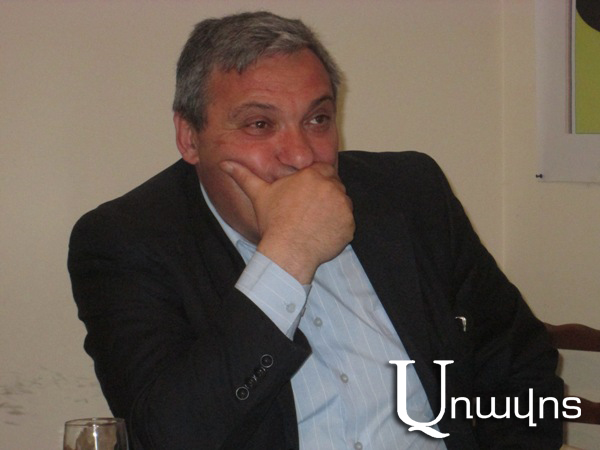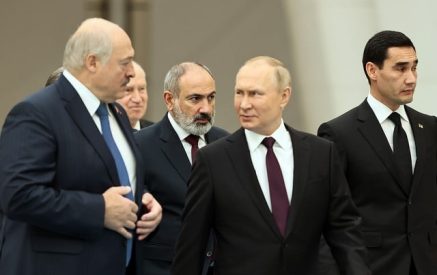Ethnographer Artashes Boyajyan thinks that the sharp rise in the dollar exchange is due to the ethno-political or civilization, geopolitical and country’s economic factors. According to the ethnographer, the clash of civilizations has a direct impact on currency change. “There is an Anglo-Saxon world or they say a Protestant world, and it tends to become hegemonic in the face of the United States. Obama used to say that he is a world superstate, in 2007 Putin announced in Munich that Russian Federation does not accept a unipolar world but bipolar or multipolar world, which naturally creates a conflict between the Anglo-Saxon world and the Slavic world. So far, the Anglo-Saxon world is successful in introducing separation into the Slavic world: Poles, Russians, and Ukrainians. And here, there is also the Confucian world, which exceeds the US with its economic potential, and Russia signed an agreement with China. Naturally, this was an 11-12 magnitude earthquake in global economy and politics. In other words, Russia turns its gaze from the West to the East. And this means that Russia gradually weakens its entire economic ties with the US dollar. The dollar appreciation is temporary. A question was raised whether the ruble depreciation will be constant. It might be. Let’s say a dollar may cost 150-160 rubles, but it would not bring significant changes in the overall political vector that Russia has chosen now. Russia is the core of the Eurasian Economic Union, or the Eurasian Economic Union Russia and is identical with the Russian world, and this is going to be the counterbalance. Also, the BRICS member countries, which already exceed the gross economic output of the major 7 countries with the volume of their gross economic output.”
According to the ethnographer, he who dominates the world market for wheat and fuel, he dominates the entire global economy. He is sure that since the economy of developing countries: India, China, a number of South-East Asian countries and Latin America countries, is growing, whereas the economy in Western countries is in the state of stagnation and a new problem of neo-colonization is emerged, this process should affect the foreign currency. “I’m not so much concerned about the depreciation of the dram, I do not care about depreciation of the ruble, I am concerned about which sector of the economy should develop, because the real value of the dram, as estimated by some experts, is restrained through the bank in Armenia. The true value of the dram, one dollar should cost 800 drams, this is the size of its purchasing power, in other words, the dram exchange rate is artificially compressed and reduced. Whereas the Russian ruble, if we take the true value costs approximately 20 rubles, in other words, the Russian ruble is also artificially depreciated. In most cases, they say that depreciation of the dram and the ruble also affects the development of local production, i.e. prerequisites are created for production of local tangible goods. If this depreciation will result in creation of tangible goods, then it would not have dangerous consequences. And if not, then, there are a lot of reasons and grounds to fear…”
Details of the video below:
Nune AREVSHATYAN























































